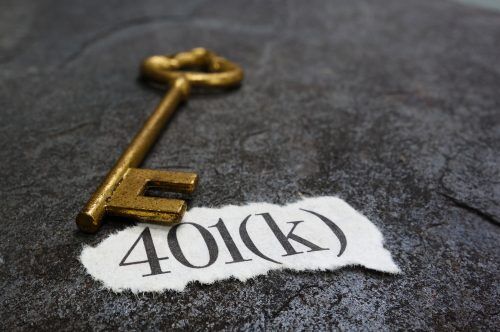401(k) Plans
Why 401(k)?
401(k) Plans have become the most popular retirement savings vehicle offered today. There are multiple benefits provided by sponsoring a 401(k) plan which can make them beneficial for both employers and employees as they add value to your company as a whole. In this guide we are going to outline some of the benefits and some of the drawbacks of sponsoring these plans so you can decide if they are a right fit for your business.
You do not need high profits to set up a 401(k) plan with a profit sharing feature
401(k) Profit Sharing Plans can be set up for employers of any size. While safe harbor contributions are generally required each year, profit sharing contributions are optional and the decision to fund can be made after you have had time to review your taxable income with your accountant.
Benefits
Flexibility
Employer profit sharing contributions are flexible and discretionary though safe harbor contributions may be required.
Savings
Business owners or key employees can save up to $57,000 per year or $63,500 for those over the age of 50.
Deductible
Contributions are deductible and retirement assets grow tax deferred until distributed from the plan.
Benefits
Employees see you are helping them achieve their retirement goals which helps build loyalty.
Get A Sample Business Design Plan

Your Options
401(k) FAQs
What is the maximum employee 401(k) Salary Deferral that can be made?
For 2020 it is $19,500. If you attain age 50 during the calendar year, you are allowed an additional “catch-up” deferral of $6,500.
What contributions can be made to a 401(k)/Profit Sharing Plan?
Depending on plan design, there are potentially four (4) sources of contributions:
- 401(k) Employee Salary Deferrals
- 401(k) Employer Match Contributions
- Non-Elective Safe Harbor Employer Contributions
- Employer Profit Sharing Contributions
For 2020, the maximum combined total of all above types of contributions is $57,000 (increased to $63,500, if age 50 or older and making 401(k) deferrals).
Can contribution amounts change each year and are they required?
Contributions are discretionary from year-to-year.
When can I withdraw money from the plan?
A “distributable event” is the typical justification for distribution. Distributable events include: attainment of normal retirement age, termination, death, disability or plan termination.
Can I borrow money from the plan?
Yes, if the plan allows for loans, although certain limits on the amount of the loan and the repayment must be followed.
Also note that some plans may allow a hardship distribution for certain specific reasons.



